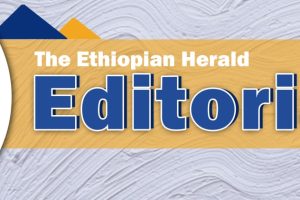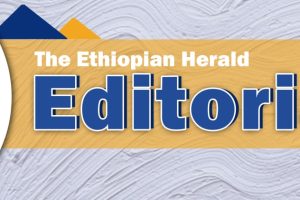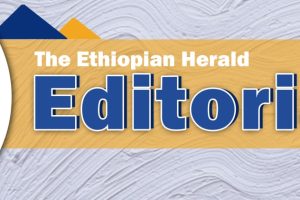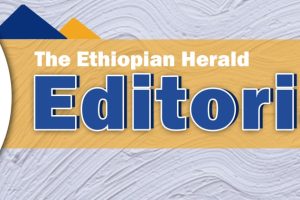
Assuming that my readers are well aware of the definitions of party and state I would like to make three postulates as a background for my opinion on the issue of party and state politics in Ethiopia. First, compared to many African countries, particularly in Western, East and South Africa, although Ethiopia boasts a long history of statehood party politics is only about two decades, if not even less. Second, during the imperial regime, there was no party to speak of except for the fact that there were some ethic based associations that acted as quasi political organizations.
The Derg had to travel a lot to find a political ideology that would suit to its intentions only to come up with “Ethiopia Tikdem!” which it failed to properly define. It just remained a buzz word popular among the devoted military. The totalitarian regime opted for Ujamma, the Tanzanian version of African Socialism. Later on 15 student movement leaders from Europe exported Scientific Socialism which was far more alien to the Ethiopian mindset. I do not need to lecture my readers that all have failed.
During the era of the Derg, pro-government political organizations, five of them as I recall formed what was then called EMALEDEH
or Union of Ethiopian Marxist Political Organizations with full support from the military which also happened to form its own party with some civil members included. After a couple of years the Workers Party of Ethiopia was formed only to be ousted from power.
The latest party ideology and politics was introduced by EPRDF in the form of Revolutionary Democracy which was borrowed from Vladimir Lenin and Ho Chi Minh and actually managed to buy time for governorship for 27 years.
With this background in mind, let me try to characterize the nature of party and state politics in Ethiopia. You may differ with me but the alchemy of the mixture of party politics and that of state nomenclature is one of the major problems in Ethiopian party and state unholy marriage.
The problem of the mix up between politics and public service, party and state has already been recognized by the late Prime Minister Melese Zenawi but he did very little to make the practical distinction to see the light of day. Prominent army officers and officials in the civil service used both their party and government positions to siphon public fund of larger proportions, land and other properties for their own families. There was no secret about this until the reform program started to identify and put into accountability the most of the senior officials in the military and civil service.
The entire situation precipitated in the fact that both opposition parties and the party on power found it hard to identify their role in the parties and in government nomenclature serving none of both properly. Actions of those who represent their parties with no adequate party discipline and responsibility would certainly spill over to their roles in government structure and waste their times maneuvering between the two roles.
Recently, a number of people and almost all media outlets are focusing on Prosperity Party without even caring to get information when things roll out. The media has already failed to produce a balanced view of recent events and not caring about the facts on the ground. Their leadership role in forming public opinion is being shattered by their apparent partisanship with the views of a number of political parties which they are inclined to support.
The country is heading towards a national election in a couple of months. This creates a situation in which the parties compete for seats in the legislature and a critical role in forming a government after winning a political power. Just imagine, we have over 90 political parties which may compete at federal and regional levels. The number of the political parties is a good indicator for the extent to which we are witnessing political polarization in the country.
Formal activities of political parties is further being hampered by so called activists who may support a certain political party and are not necessarily registered as members. On the other hand youth groups in regional towns and a number of federal cities are asserting their political role with no nomenclature.
These are therefore some of the factors that are complicating the development of amicable relations between parties and government. The entire political development in Ethiopia is further exacerbated by the imbalance and mix-up between the roles of a party and the state which became far more obvious since the EPRDF assumed power in this country.
It is therefore very important to make a proper demarcation between party functions and that of the government. This is not about blind support to any one of them only but to make the necessary balance.
The Ethiopian Herald December12, 2019
BY SOLOMON DIBABA




